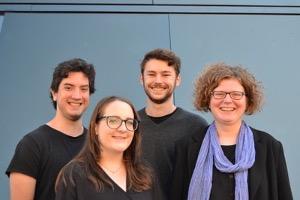Towards an Increasing Regionalization of International Politics? Comparing the Development of External Competencies of Regional Organizations over Time
Funding: Fritz-Thyssen-Stiftung
Period of Funding: September 2016 - August 2018
Project Leadership: Prof. Dr. Diana Panke
Research Assistant: Anna Starkmann
Abstract:
States work together in Regional Organizations (ROs) in almost all geographical parts of the world. Although many ROs were created with the aim of strengthening economic cooperation between the respective member states, almost all of the current 61 ROs are now also active outside their geographical borders. Case studies have shown that ROs today are indeed important international actors that can make important contributions to solving international problems in a wide range of policy areas (e.g. species conservation, climate change). Nevertheless, there are no comparative studies on the role of the 61 ROs with regard to the regionalization of international politics over time.
This project examines and compares important fundamental conditions under which the different ROs can influence international relations in the first place. It analyzes how ROs' external policy competences have evolved between 1945 and 2015 and across nine external policy fields and explains observed variances between ROs, across external policy fields and over time. The project provides important insights into the dynamic growth of external policy competences of ROs, shows why some ROs are more oriented towards external action than others, and explains why the regionalization of international politics varies across policy fields.
Publications:
-
Diana Panke, Sören Stapel and Anna Starkmann (2020): Comparing Regional Organizations. Global Dynamics and regional Particularities. Bristol: Bristol University Press.
-
Diana Panke, Anna Starkmann (2020): Responding to Functionalist Incentives? Exploring the Evolution of Regional Organisations After the End of the Cold War. Journal of Contemporary European Studies, 28(2): 216-235.
